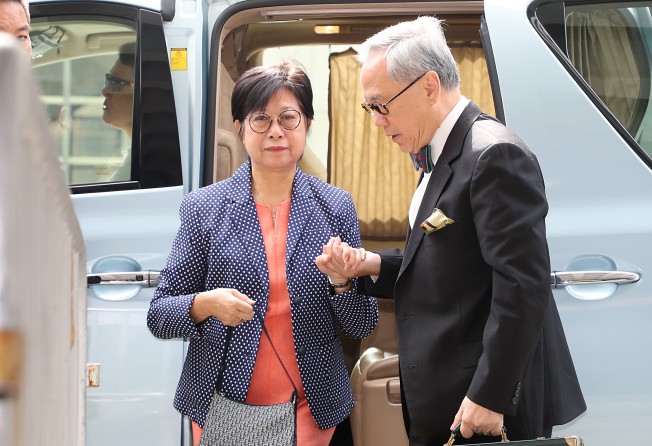Former Hong Kong chief executive Donald Tsang used secret rule to justify travel, court told
But prosecutor says his guidelines on taking yachts and jets existed only ‘in his head’

Former Hong Kong leader Donald Tsang Yam-kuen played by his own “secret” rule, which existed only “in his head”, when it came to declaring his private yacht and jet trips with friends, his bribery trial heard on Monday.
The High Court heard this rule stated that outside office hours, the former chief executive could use private transport his friends provided so long as long as there was no conflict of interest between the he and the friend, and that Tsang would pay for the travel at market rate.
But prosecutor David Perry QC noted that the rule had never been recorded in any official government documents until Tsang told his subordinates in 2012.
He also questioned its effectiveness in fighting conflicts of interest, given that details of activities Tsang took part in outside the public eye were never recorded by his office.
“[It was] in his head,” Perry suggested to Kevin Choi, Tsang’s former deputy private secretary, who is testifying as a prosecution witness. Choi, who served in the post between 2010 and 2012, agreed.
Choi was tasked with preparing answers for enquiries from the legislature, as Tsang was under intense media scrutiny in 2012 for travelling in his friends’ private jets and yachts during his time in office.
The prosecutor also said: “It was secret.” Choi agreed.
Tsang, 72, has denied one count of accepting an advantage between 2010 and 2012 as the city’s chief executive.
The current trial centres on a three-storey property in Shenzhen, which came to light together with the private yacht and jet rides to Macau, Japan and Phuket which attracted extensive media coverage in 2012. The penthouse was where Tsang planned to retire after he stepped down in 2012.
The former top official has been accused of accepting at least HK$3.8 million in refurbishment and design fees for the penthouse and in return becoming “favourably disposed” to a local radio station, of which the major shareholder was businessman Wong Cho-bau.
Prosecutors said Wong owned the penthouse indirectly and paid for the renovation. Meanwhile, Tsang granted Wave Media’s various licences without revealing his tie with Wong.
On Monday, Choi, who is now the deputy secretary for transport and housing (transport), said he learned about the rule for the first time when he was preparing a reply to the Legislative Council.
This was despite the fact that the rule was adopted in 2007 by Tsang, who took office in 2005 and the first time it was used was during the Macau trip in 2009, the court heard.
But Choi said he was not “surprised” that Tsang had to create his own rule because there were no guidelines to govern declarations of the chief executive.
Regarding the penthouse, Choi said he was not told about it until 2012, even though prosecutors alleged that Tsang had been preparing it since 2010.
Tsang’s barrister Sewlyn You SC countered, saying that even though there were no official records of Tsang’s private activities, the top official was always accompanied by a bodyguard from the police, whose records were kept. Choi agreed.
The trial continues before Mr Justice Andrew Chan Hing-wai on Tuesday.